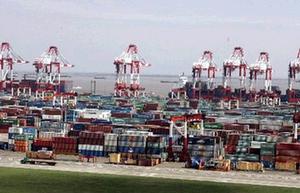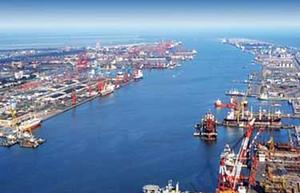Is the metal stored in a Chinese warehouse really there? Has the peanut oil shipment that a bank lent money against been swapped for worthless water?
Basic questions have begun to play on the minds of traders and bankers doing business in the world's largest raw material importer, after an investigation began at Qingdao Port into whether more than one license had been issued against the same material.
The duplication, which leaves someone out of pocket when they claim what they thought was theirs, may be the result of deliberate fraud by a company using the same metal to raise multiple loans.
The case of Qingdao, the world's seventh-largest port, has yet to play out and could be an isolated problem involving one or a handful of companies, rather than endemic at ports.
But for many Western traders eyeing the gargantuan growth of China's commodity demand, credit is a touchy issue that brings back memories of the 2008 financial crisis, making them especially jumpy when credit related issues arise.
Qingdao Port International Co Ltd said on Friday it had been asked by the Ministry of Public Security to help with an investigation relating to aluminum and copper products under the name of a third-party cargo shipment agency on behalf of a cargo owner.
It did not say how much metal was involved, but it said that it was an "immaterial proportion" of its total annual throughput. The port added that none of its employees was under investigation.
Yet in a country where oversight of commodity warehousing is generally accepted as weaker than in developed financial centers, the case is making people nervous.
Already, some copper cargoes being held at Qingdao are being shipped to warehouses outside the country that are regulated by the London Metal Exchange, industry sources said, in what one trade executive called a "classic flight to quality".
|
 |
 |
| Robust growth at Shanghai port | Tianjin Port plans to upgrade its overall environment |
